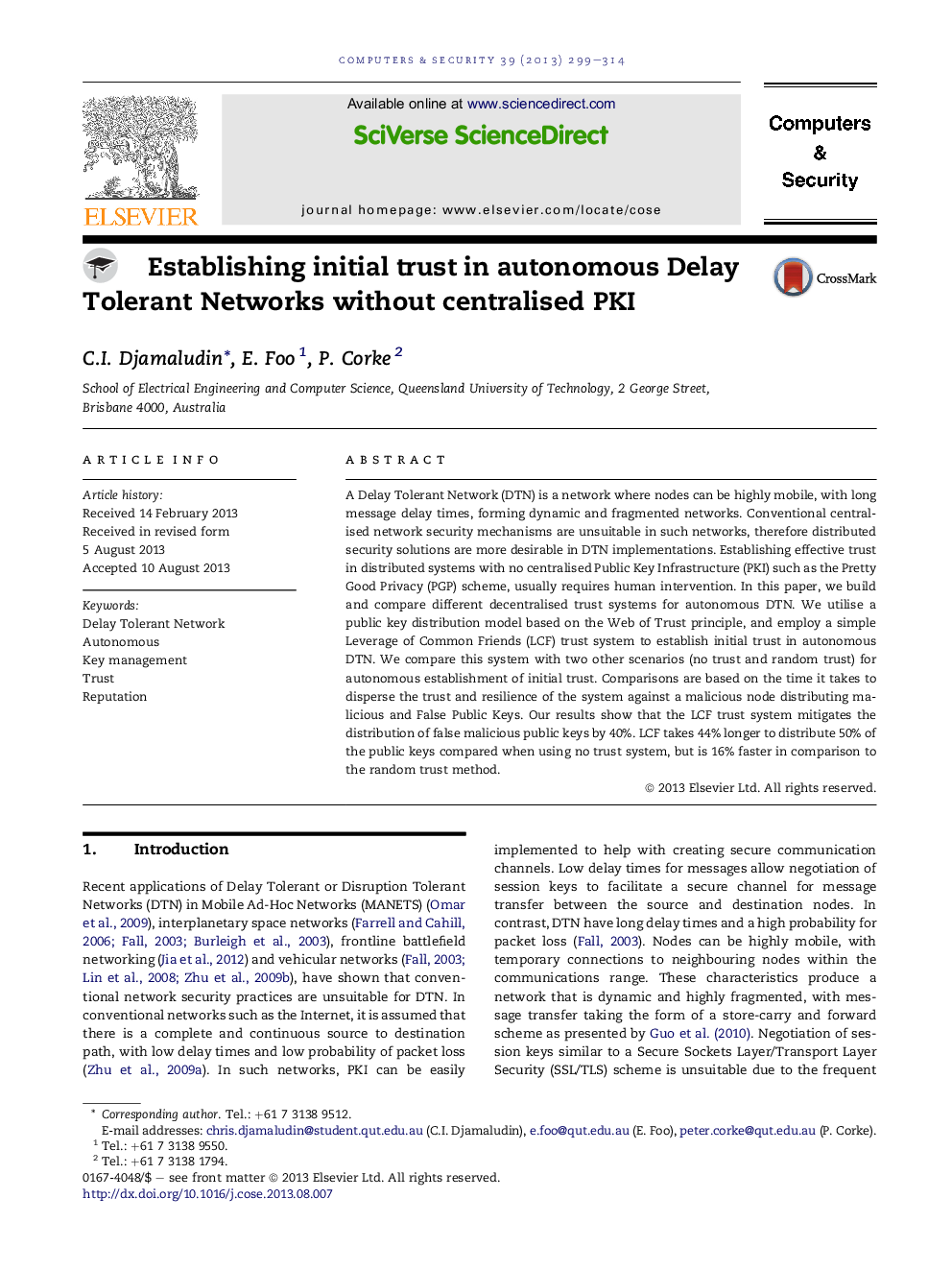| کد مقاله | کد نشریه | سال انتشار | مقاله انگلیسی | نسخه تمام متن |
|---|---|---|---|---|
| 454769 | 695289 | 2013 | 16 صفحه PDF | دانلود رایگان |

• We model a Web of Trust key distribution model for Delay Tolerant Networks.
• We focus on establishing trust between autonomous nodes to assist key distribution.
• Propose a simple trust system that Leverage Common Friends between autonomous nodes.
• We compare trust systems on key distribution speed and malicious key penetration.
• The trust system mitigates the spread of malicious keys by 40% at end of simulation.
A Delay Tolerant Network (DTN) is a network where nodes can be highly mobile, with long message delay times, forming dynamic and fragmented networks. Conventional centralised network security mechanisms are unsuitable in such networks, therefore distributed security solutions are more desirable in DTN implementations. Establishing effective trust in distributed systems with no centralised Public Key Infrastructure (PKI) such as the Pretty Good Privacy (PGP) scheme, usually requires human intervention. In this paper, we build and compare different decentralised trust systems for autonomous DTN. We utilise a public key distribution model based on the Web of Trust principle, and employ a simple Leverage of Common Friends (LCF) trust system to establish initial trust in autonomous DTN. We compare this system with two other scenarios (no trust and random trust) for autonomous establishment of initial trust. Comparisons are based on the time it takes to disperse the trust and resilience of the system against a malicious node distributing malicious and False Public Keys. Our results show that the LCF trust system mitigates the distribution of false malicious public keys by 40%. LCF takes 44% longer to distribute 50% of the public keys compared when using no trust system, but is 16% faster in comparison to the random trust method.
Figure optionsDownload as PowerPoint slide
Journal: Computers & Security - Volume 39, Part B, November 2013, Pages 299–314